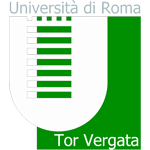The aim of the scientific discipline known as “Comparative Studies” is to identify relationships between authors, texts, works of art, movements and phenomena of different cultures so as to highlight their characteristic aspects in terms of both continuity and specificity.
In the contemporary era of multiculturalism and globalization, as the dissemination of ideas becomes increasingly more rapid and widespread, an openness to alterity acquires fundamental significance and impacts linguistic, literary and artistic experiences, thereby modifying consolidated models and creating new ones.
On the basis of these considerations, and also with reference to recent interchanges within the European Union regarding cultural policies, the comparativist approach permits an important and original expansion of the themes and perspectives of recent research in linguistics, literature and art history.
Thus, the main objectives of the doctoral programme focus on preparing scholars with excellent critical, analytical skills in the fields of literature, languages and art history.
The tools and methodologies acquired by the doctoral candidates in their chosen fields of study will be enhanced and strengthened thanks to the typically comparativist contributions inherent in the comparison of different cultures, languages, literatures, artistic pieces and their contexts. Within the basic uniformity of the doctoral programme, four curricula are offered: Foreign Languages and Literatures; Italian Studies; Art History; Literary Theory and Italian Linguistics.
The objectives of the PhD and the dissertation
The PhD programme is aimed at expanding methodological and disciplinary knowledge and preparing the dissertation that will constitute the final outcome of the doctoral programme. The presentation of an original research project is an essential prerequisite for admission into the PhD programme. The training activities generally observe the following annual program, partially modifiable for organizational and educational needs.
First year
By the end of December, the topic of the dissertation will have been defined and approved in a meeting with the Scientific Board of the PhD programme, which will also appoint an advisor. Subsequent meetings will be held three times a year.
In March, the PhD candidate is required to present a report on the progress of her/his research and submit – in agreement with the advisor – a working bibliography.
In the June meeting, the PhD candidate is required to report on the bibliography related to the dissertation topic and on the status quaestionis.
For the March meeting, the PhD candidate will present three bibliographical reviews, related to three texts belonging to a list proposed by the Scientific Board of the PhD programme and different for each disciplinary area; for the June meeting, two reviews of critical texts related to the dissertation topic are also required. All reviews (both bibliographical and critical) must be sent to the Scientific Board of the disciplinary area, 15 days before the date of the meeting.
The two critical reviews and the three bibliographical reviews will be part of the evaluation permitting progression from the first to the second year which will take place in October.
Second year
During the second year, the work and the progress of the research of the PhD candidate will be constantly monitored by the assigned advisor and by the Scientific Board of the disciplinary area.
The PhD candidate will meet with the Scientific Board of the PhD programme three times a year during the months of December, March /April, June / July (the calendar will be announced at the beginning of the academic year).
For the December meeting, the PhD candidate is expected to give a 20-minute public talk reporting on the research progress.
For the March meeting, the PhD candidate is required to submit, at least 15 days prior to the date of the meeting, a substantial part of the work in agreement with the advisor. The text will be accompanied by a detailed index of the parts of the work submitted to the advisor (about 2,000 characters), which will then be examined by the entire Scientific Board of the disciplinary area.
For the June meeting, an additional part of the dissertation will be similarly submitted to the advisor; a detailed index of approximately 2,000 characters pertaining to this part of the work will be sent to the Scientific Board of the disciplinary area. The work carried out in the second year will be evaluated in the examinations required for the progression from the second to the third year scheduled for the month of October.
Third year
During the third year, the progress of the research of the PhD candidate will be constantly monitored by the advisor and by the Scientific Board of the disciplinary area.
The meetings with the Scientific Board of the PhD programme
will take place three times a year, and are scheduled for the months of December, March and June (the calendar will be announced at the beginning of the academic year).
For the meetings of December, March and June, the PhD candidate is required to submit new parts of the work in a revised version to the advisor and to the Scientific Board of the relative disciplinary area, 15 days before the date of the meeting.
From June of the third year, the PhD candidate will be engaged in a revision of the entire dissertation which will be definitively submitted, both in digital and paper format by the end of October.
